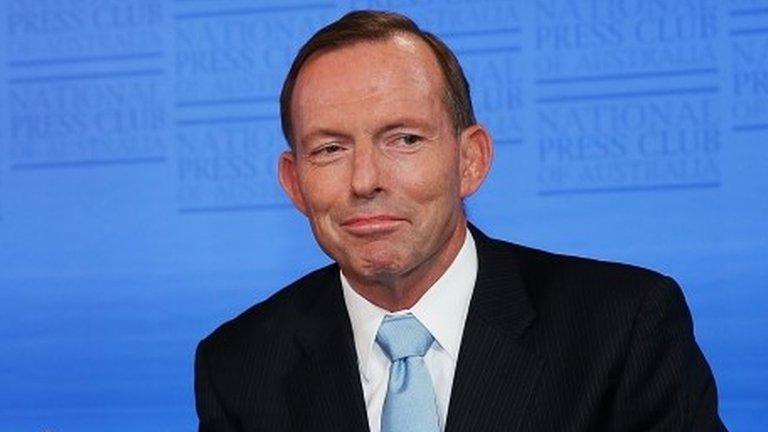Profile: Tony Abbott
- Published
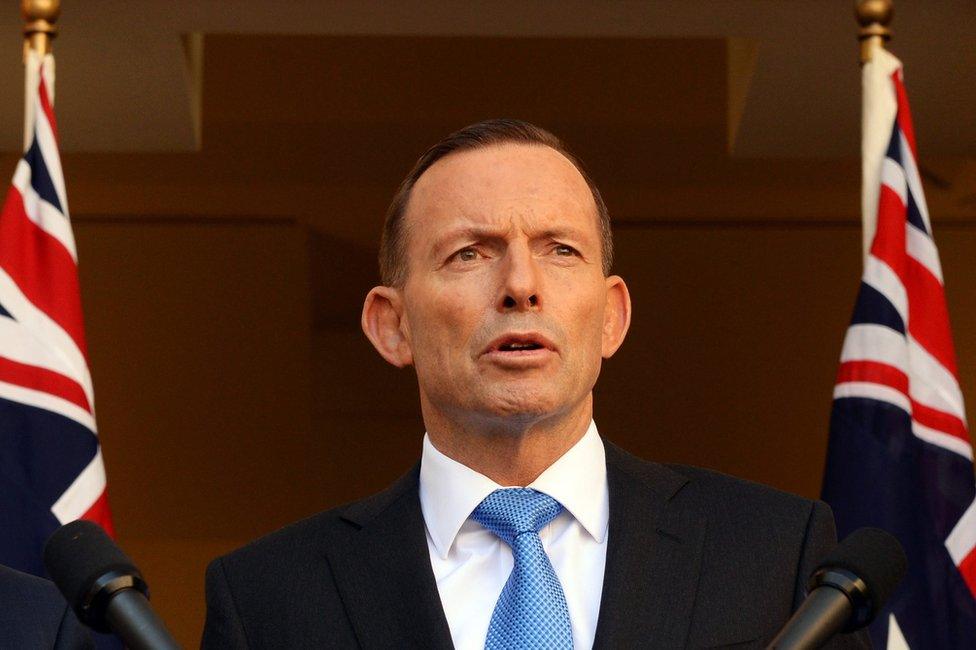
Mr Abbott is facing a leadership challenge two years into the top job
Tony Abbott was already a polarising figure when he became prime minister of Australia in 2013.
A former Rhodes Scholar who once wanted to be a monk, the 57-year-old attracted early criticism for gaffes and was famously called a misogynist by former Labor Prime Minister Julia Gillard.
A series of public blunders, questionable calls and U-turns on key policies have since resulted in a decline in his popularity.
In February 2015 he survived a challenge from MPs within his own party that had threatened to remove him from the top job less than 18 months in.
But in September he was challenged once again by former communications minister Malcolm Turnbull - and ousted in a hastily-arranged vote.
'Mad monk'
Tony Abbott was born in 1957 in England to Australian parents who returned to Sydney a few years later.
After graduating in economics and law from the University of Sydney, where he was also a leading student boxer, he attended Oxford as a Rhodes Scholar, studying politics and philosophy.
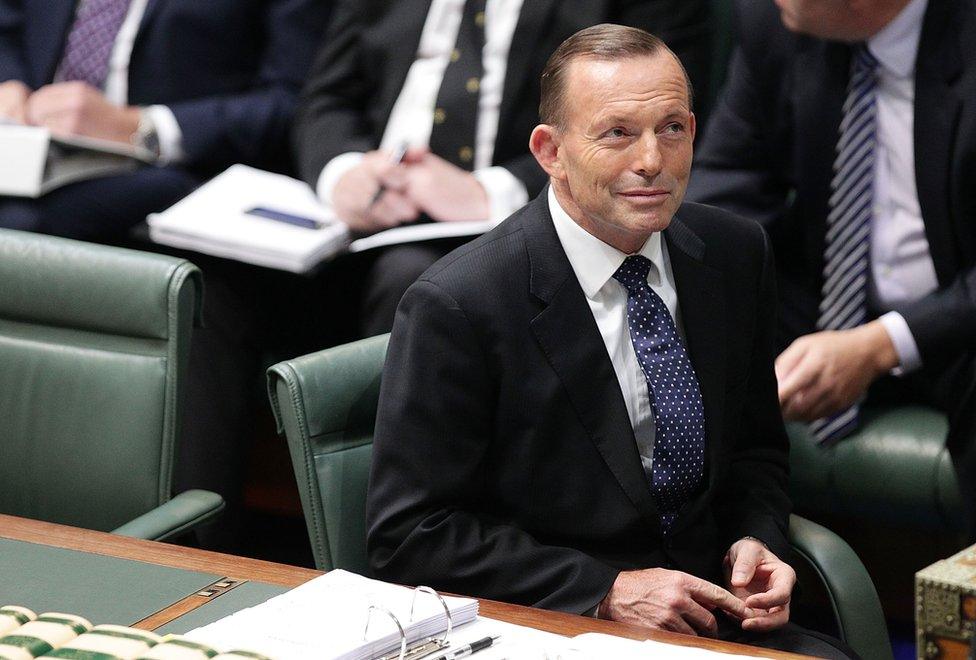
When in opposition he was known as "Tear-down Tony"
He briefly trained as a Catholic priest, before working as a journalist for the Australian newspaper.
He then worked as an adviser to the Liberal Party, before entering politics in 1994 when he was elected to represent the affluent Warringah district of Sydney.
Under former Prime Minister John Howard, he served as an employment minister between 1998 and 2001 and as minister for health and ageing in 2003.
In 2009, he narrowly beat incumbent Malcolm Turnbull in a party leadership vote, winning 42 votes to Mr Turnbull's 41. Many pundits were shocked by the result, given Mr Abbott's gaffe-prone history.
As leader of the opposition, Mr Abbott's aggressive approach earned him several nicknames. His tactics led some to call him "Tear-down Tony" or "Mad Monk" - a reference to his time spent training as a priest.
He has also consistently voted against relaxing laws on abortion, same-sex marriages and stem cell research.
His stance on social issues, and his poor polling among women, has led some to say that Mr Abbott has a "women problem". In October 2012, Ms Gillard's blistering speech in parliament, external accusing him of misogyny went viral online.
'Stop the boats'
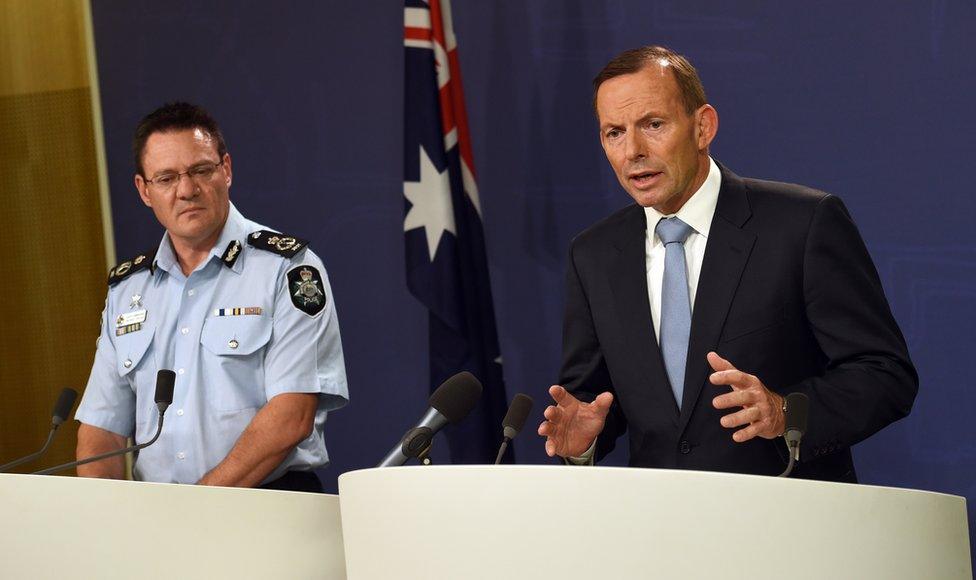
Mr Abbott, seen here with Australian Federal Police deputy commissioner Michael Phelan, has pushed for more anti-terror security measures
He took on Labor's Kevin Rudd - who ousted Ms Gillard as Labor leader - in the September 2013 polls and secured a convincing win.
Ahead of the election, Mr Abbott had argued for tough border controls, lower taxes and a smaller government.
He supported Labor's policy of processing asylum seekers offshore, and went further - calling for asylum boats to be turned around and for those in Australia approved as refugees to be limited to temporary visas.
He has followed through on these promises, to great controversy, setting up a military-led border patrol called Operation Sovereign Borders.
He has also been seen to be taking strong action against the threat of Islamist militants, raising the terror level in September 2014 and pushing through legislation that makes it easier to restrict Australians from travelling to certain areas.
Australia has also entered the fight against the so-called Islamic State with air strikes in Iraq and Syria.
'Shirt-fronting'
He was applauded for pushing for an investigation into the downing of Malaysia Airlines flight MH17, which killed 38 Australians.
Mr Abbott also controversially threatened to "shirtfront" Russian leader Vladimir Putin ahead of the November G20 summit in Brisbane over the MH17 incident- but the two appeared cordial when the meeting took place.
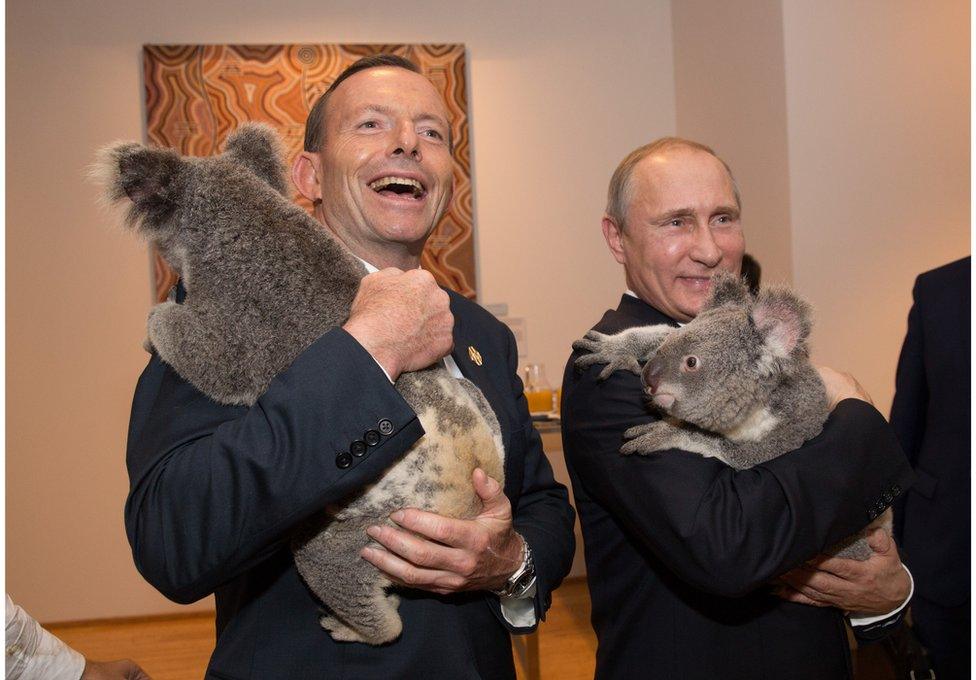
Mr Abbott and Mr Putin cuddled koalas at G20
In July 2014 the Australian Senate voted to repeal a carbon tax, a levy on the biggest polluters, that the previous Labor government had implemented, something Mr Abbott had strongly argued for.
Mr Abbott has in the past dismissed climate change as "faddish", but says he is not a climate sceptic.
In recent months he has started losing favour with voters, who have disagreed with his proposed changes to university fees and Medicare. His decision to award an Australian knighthood to the Duke of Edinburgh in January was also met with derision.
Research company Ipsos' polls show that his approval ratings have steadily slid since last year, and its latest survey in August 2015, external showed only 15% of the public think Mr Abbott should remain the leader of the Liberals and the country's prime minister.
- Published6 February 2015
